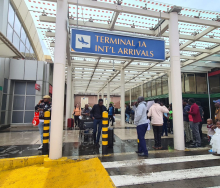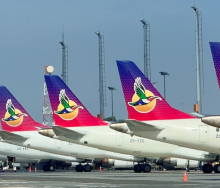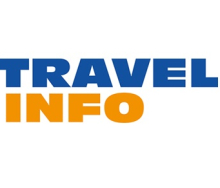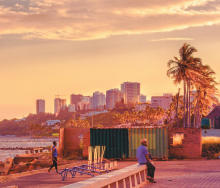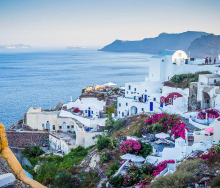THE growth in international
OTA bookings is
threatening not only
traditional travel agents but
General Sales Agents (GSAs)
and the industry as a whole.
When travel agents lose
bookings to international OTAs,
it is not only the individual
revenue that is lost but the
volume dilution can ultimately
affect regional pricing for all.
GSAs are, in many cases,
adapting their business
models to address this
and the diminishing control
that they have over booking
channels.
George Argyropoulos, ceo
of Cruises International, the
appointed GSA for a number
of cruise lines in South Africa,
estimates that international
OTAs could be poaching as
much as 20%-25% of South
African cruise sales per year.
He describes this dilution
of business as a serious
threat to the local industry. To
prevent bookings from being
lost to the OTAs, Cruises
International guarantees that it
will price-match any competing
quotes in writing from an
international supplier.
George says if a client has
not already done a comparison
on the Internet, they will
do one at some stage. He
therefore recommends that
travel advisers manage the
situation by asking clients
to communicate information
from other sources with them.
Agents should also explain the
risks of booking with unknown
online companies, explaining
that, by booking through
correct channels, the client
always has a company or
person to refer back to.
From a supplier perspective
George is also advocating a
change from an override to a
retainer model for international
representation contracts.
Charmaine Thome, gm
of Aviareps in Southern
Africa, told TNW that it held
GSA accounts for airlines,
hotel groups and tourism
authorities. She says an
override model still works
well for most airlines as the
majority of sales from the
South African market are
directed through BSP, which is
easy to monitor and manage.
“The more we sell, the more
we earn,” she explains.
However Aviareps now
employs a retainer GSA model
for hotel and tourism authority
accounts as it is currently too
difficult to monitor regional
sales through the many
booking channels available
around the world.
Charmaine adds that
Aviareps has also started
instituting different contract
models for different airlines.
She explains that while some
airlines only pay overrides
on BSP sales, some pay a
smaller override commission
on Internet sales (based on
an airline generated report)
in addition to BSP sales to
address growing website
bookings.
Jackie Adami, md of
Development Promotions,
says industry dynamics are
changing at a rapid rate
but she believes there will
always be room for a GSA
for fulfilment of distribution,
marketing and support –
particularly in niche areas and
with more complex product.
“If the service you provide
travel agents and your
knowledge about your product
is always phenomenal, travel
agents will always return to
book with you as you are
making their lives easier,”
says Jackie.
Janine Pretorius, owner of
Encore Cruises, which has
been an appointed GSA for
Regent Seven Seas Cruises
for over 20 years, says the
commission override model
that they employ is still
working well for them. She
says international OTA dilution
is slightly less of a problem
in the luxury niche market,
particularly as the South
African cruise market is still
so heavily reliant on travel
agents.
Channel dilution could force new GSA models
26 Jun 2019
Comments | 0


